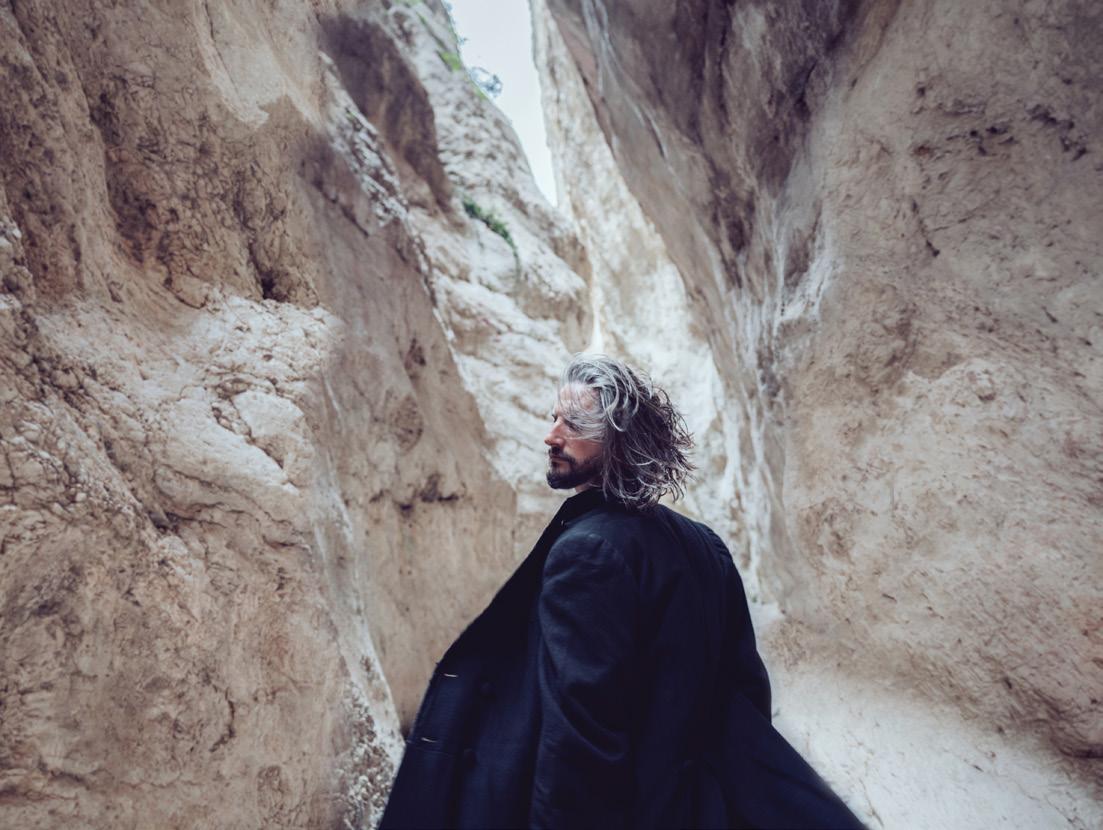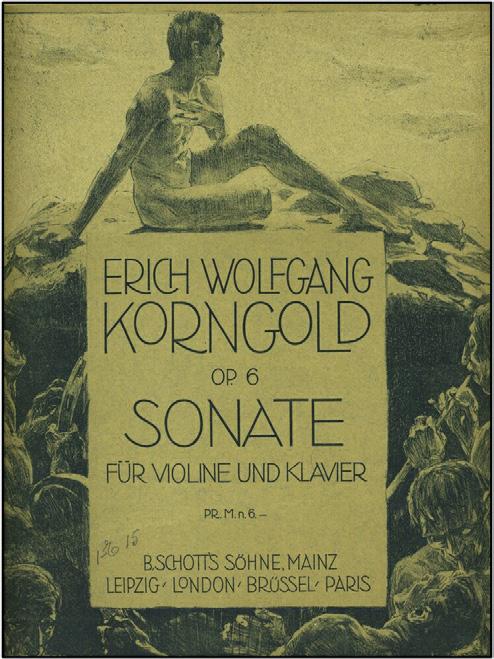
2 minute read
works and songs of E.W. Korngold
THOUGHTS ON THE CHAMBER WORKS AND SONGS OF ERICH WOLFGANG KORNGOLD
Though I spent my adult years as a professional violinist, and am the only granddaughter of Erich Wolfgang Korngold, I have never studied or performed his Violin Sonata, Op. 6. I first became aware of the work when I was studying music at university. One of the faculty violin instructors, Endre Granat (protégé of Jascha Heifetz), decided to perform and record the piece with pianist Harold Gray. Together, they wanted to put on a house concert at a friend’s home, and Harold asked me to turn pages for him. I was probably more nervous that evening than I ever was performing a solo violin work myself!
Over the years, I have had the good fortune to perform quite a few of my grandfather’s compositions. In 1997, Korngold’s centenary year, I was asked to play with the Oregon Symphony under the baton of James DePreist. An anonymous donor had offered the sum of $1000,000 (to be matched) to the Symphony, stipulating that the director could choose any piece of his liking to perform and record. As luck would have it, Maestro DePreist had recently been introduced to the 1991 McGill University Orchestra’s recording of Korngold’s Symphony in F sharp. I am told he fell in love with it, and though he was well aware that the Korngold Family resided in Portland, the choice apparently had nothing whatsoever to do with this fact. It was a great honor to work on that project. My father, (Korngold’s elder son) had died the year before, and I requested that the recording be dedicated to his memory. In hindsight, I think it may have been the nicest gift I ever presented to my mother.
In 1985, my husband (a cellist) and I were hired to play with the Los Angeles Opera Orchestra in the Deutsche Oper Berlin production of Die tote Stadt. And I have played various pieces of Korngold’s chamber music, notably two movements from the Much Ado About Nothing Suite on the occasion of my parents’ 50th wedding anniversary.
I love the eclecticism of Korngold’s output, though I must confess that I weary when it sometimes appears that he is lauded more for his film scores than for his absolute music, most of which he composed before his Hollywood years. I have heard many of the chamber works and songs performed in live concerts and must confess that I “love the one I’m with”. Sometimes, I suppose it has something to do with the string players or the voice, but oftentimes it is the intimacy and depth of his writing that lures me. Hanging in my office is a framed manuscript of one of Korngold’s songs. The lyrics are from Sonnet 130 by William Shakespeare, and it was suggested to my grandfather by my father. As such, it is one of my most treasured possessions.
Kathrin Korngold Hubbard











